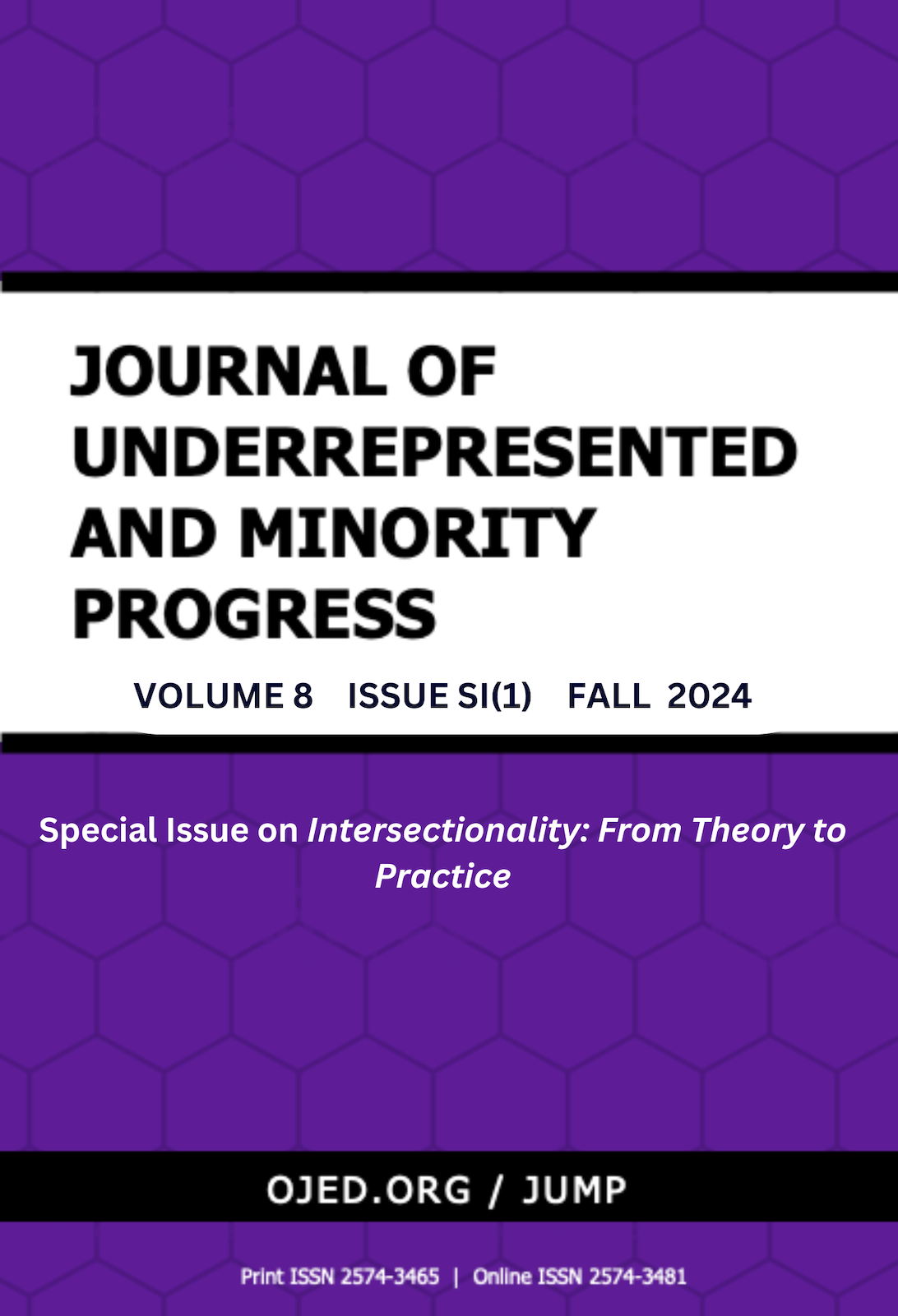Critical Voices of Asian American Non-Tenured Female Faculty: A Dialogue on Intersectionality
DOI:
https://doi.org/10.32674/r5wsph10Keywords:
Asian American female, Faculty of Color, AsianCrit, Asian American Faculty, Non-Tenure Faculty, Critical Asian American FeminismAbstract
Marginalization of non-tenured faculty of color in academia endure increased responsibilities and workload without compensation, based on cultural affiliation (Cleveland, et al., 2018; Rideau, 2021). The gender equity gap in salary among non-tenured faculty further exacerbates the issue (American Association of University Professors, 2020). In raising this awareness, this collaborative autoethnographic study focuses on foregrounding the positionality in Asian American non-tenured female faculty (AANTFF) who experience triple marginalization of being Asian, female, and non-tenured. The theoretical framing for this work draws upon Asian Critical Race Theory (AsianCrit) (Chang, 1993; Iltikar & Museus, 2018; Yoo et al., 2022). Critical Asian American Feminism (Chow, 1987), and Critical Collaborative Autoethnography (Bhattacharya, 2008), to develop an interdisciplinary framework using the lens of intersectionality both as a concept and a method. Guided by this research question, in what ways do AANTFF amplify their critical voices through autoethnographic work to understand positions within Asian Critical Feminism and AsianCrit? The researchers critically reflect and engage in a dialogue on their lived experiences with intentional and collective engagement, which are rooted in a deeply seeded racialized history that has informed and shaped their present context.
References
References
Armster. (2021). A Phenomenological Examination of Womanist Leadership in an Urban
Community College. ProQuest Dissertations Publishing.
Ashlee, A. A., Zamora, B., & Karikari, S. N. (2017). We Are Woke: A Collaborative Critical
Autoethnography of Three “Womxn” of Color Graduate Students in Higher Education. International Journal of Multicultural Education, 19(1), 89–104. https://doi.org/10.18251/ijme.v19i1.1259
Azhar, Alvarez, A. R. G., Farina, A. S. J., & Klumpner, S. (2021). “You’re So Exotic Looking”:
An Intersectional Analysis of Asian American and Pacific Islander Stereotypes. Affilia, 36(3), 282–301. https://doi.org/10.1177/08861099211001460
Bhattacharya, H. (2008). New critical collaborative ethnography. In S. N., Hesse-Biber &
P. Leavy (Eds.), Handbook of emergent methods (pp. 303-324). Guilford.
Chang, H., Ngunjiri, F., & Hernandez, K. A. C. (2013). Collaborative autoethnography. Routledge.
Chang, R. S. (1993). Toward an Asian American legal scholarship: Critical race theory, post-structuralism, and narrative space. California Legal Review, 81, 1241.
Chow, E. N. L. (1987). The development of feminist consciousness among Asian American women. Gender & Society, 1(3), 284-299.
Cleveland,R. Sailes, J., Gilliam, E. and Watts, J. (2018). Theoretical focus on cultural taxation: Who pays for it in higher education, Advances in Social Sciences Research Journal, 5(10), 95-98.
Deo, M. E. (2015). A better tenure battle: fighting bias in teaching evaluations. Columbia Journal of Gender & Law, 31, (7), 7-43.
Freeman Jr., S., & DiRamio, D. (2016). Elitism or pragmatism? Faculty hiring at top graduate programs in higher education administration. Journal of the Professoriate, 8(2).
Gutiérrez y Muhs. (2012). Presumed incompetent the intersections of race and class for women
in academia. University Press of Colorado.
Hernandez, K. A. C., Chang, H., & Ngunjiri, F. W. (2017). Collaborative autoethnography as multivocal, relational, and democratic research: Opportunities, challenges, and aspirations. a/b: Auto/Biography Studies, 32(2), 251-254.
Hsieh, & Nguyen, H. T. (2020). Identity-informed mentoring to support acculturation of
female faculty of color in higher education: An Asian American female mentoring relationship case study. Journal of Diversity in Higher Education, 13(2), 169–180. https://doi.org/10.1037/dhe0000118
Hune, S. (2011). Asian American women faculty and the contested space of the classroom: Navigating student resistance and (re) claiming authority and their rightful place. In Women of color in higher education: Turbulent past, promising future (Vol. 9, pp. 307-335). Emerald Group Publishing Limited.
Iftikar, J. S., & Museus, S. D. (2018). On the utility of Asian critical (AsianCrit) theory in the field of education. International Journal of Qualitative Studies in Education, 31(10), 935-949.
Ontiveros, M. L. (1993). Three perspectives on workplace harassment of women of color. Golden Gate UL Rev., 23, 817.
Wallach Scott, J. (2020). ‘The red heart of truth’: On Denise Riley’s critical feminism. Feminist
Theory, 21(3), 267-273.
Yoo, H. C., Gabriel, A. K., & Okazaki, S. (2022). Advancing research within Asian American
psychology using Asian critical race theory and an Asian Americanist perspective. Journal of Humanistic Psychology, 62(4), 563–590. https://doi.org/10.1177/00221678211062721


